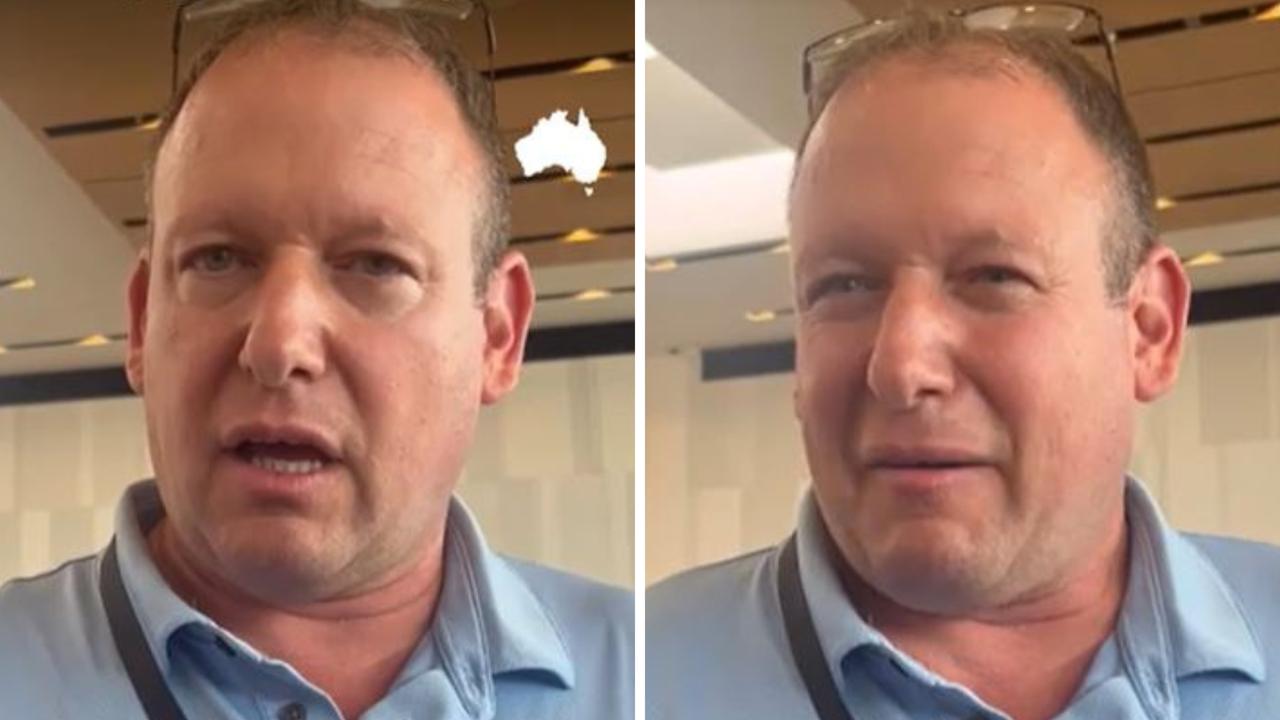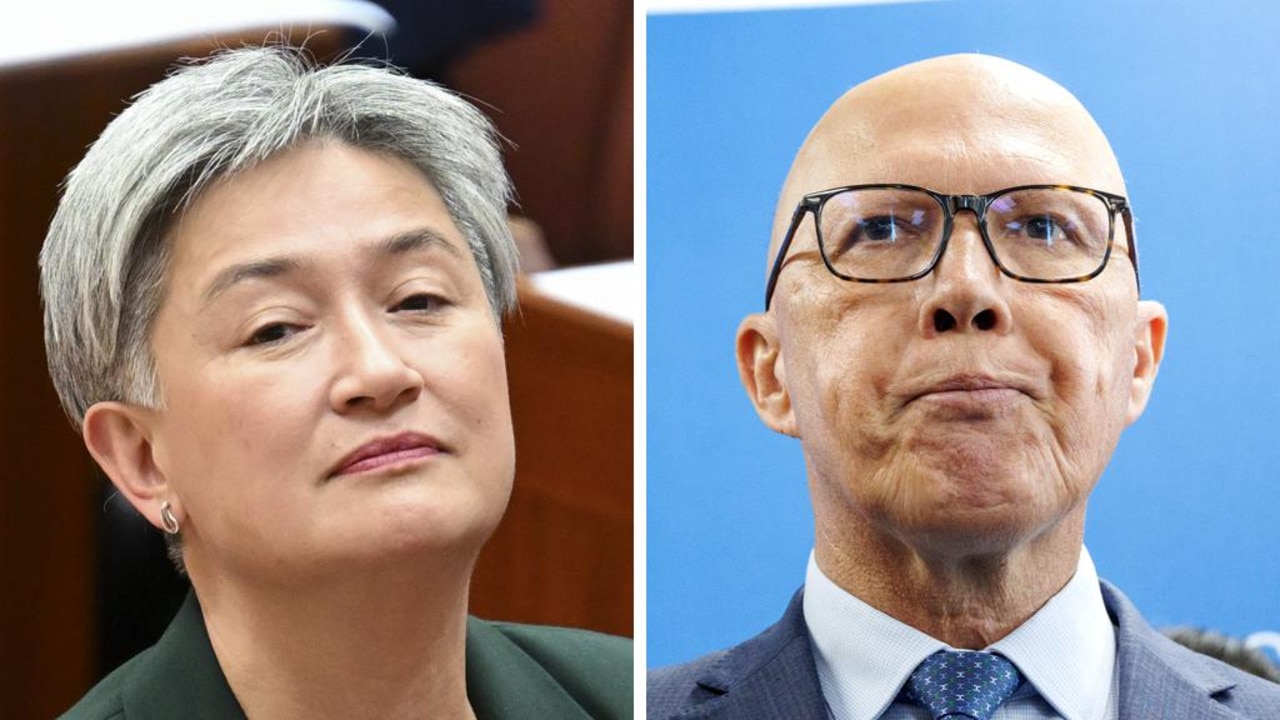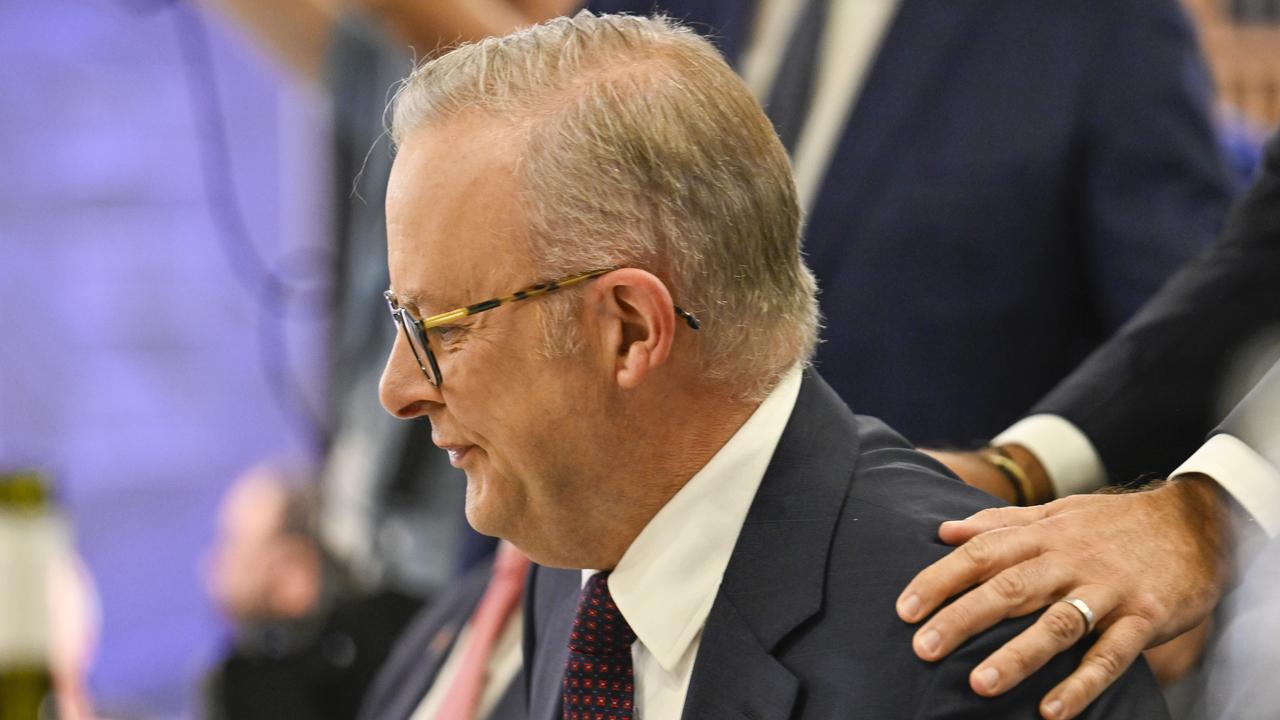Donald Trump pulls out of Iran deal: Weapons experts are ‘concerned’
IF THIS rogue nation drops a bomb, it will should have Trump’s name all over it, concerned experts have said after the President’s radical call.
GLOBAL experts have slammed Donald Trump’s decision to pull out of the Iran deal warning it will divide allies and fuel the chances of the Middle East nation building a nuclear device.
Experts at the James Martin Centre for Nonproliferation Studies warned the US President has made a grave error in pulling out of the 2015 Joint Comprehensive Plan of Action (JCPOA).
Dr Jeffrey Lewis, East Asia nonproliferation program director, said Mr Trump’s decision was driven by personal and partisan motives.
“There was no strategic reason to abandon an agreement that was working to prevent Iran from building a nuclear weapon,” he said.
“Worse, the administration has no plan what to do next. When Iran builds a nuclear weapon, it should be emblazoned TRUMP, like one of his casinos.”
Dr William Potter, the Sam Nunn and Richard Lugar Professor of Nonproliferation Studies at the Middlebury Institute of International Studies, warned the move was detrimental to nuclear nonproliferation and US national security.
Writing in the Bulletin Of The Atomic Scientists, Joshua H Pollack, compared the withdrawal from the JCPOA to the President’s contempt towards the Affordable Care Act and the Deferred Action for Childhood Arrivals (DACA) program.
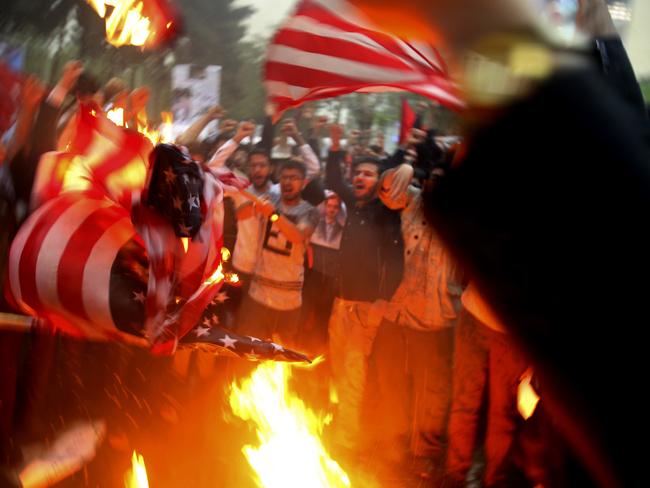
“It’s a safe bet that Trump understands none of these complex policy matters in any depth,” Mr Pollack, editor of the Nonproliferation Review, wrote.
“In each case, he has condemned an Obama-era law or policy in hyperbolic terms, while foisting responsibility for a replacement on whoever is invested in the outcome. After all, a blackmailer can hardly afford to care about his hostages.”
‘DEAL NOT DEAD’
European allies are now working to salvage the deal and preserve their Iranian trade after Mr Trump withdrew the US from the landmark accord and ordered sanctions reimposed on Tehran.
“The deal is not dead. There’s an American withdrawal from the deal but the deal is still there,” French Foreign Minister Jean-Yves Le Drian said.
But Iranian President Hassan Rouhani, a pragmatist who helped engineer the 2015 deal to ease Iran’s economically crippling isolation, told French counterpart Emmanuel Macron in a phone call that Europe had only a “limited opportunity” to preserve the pact.
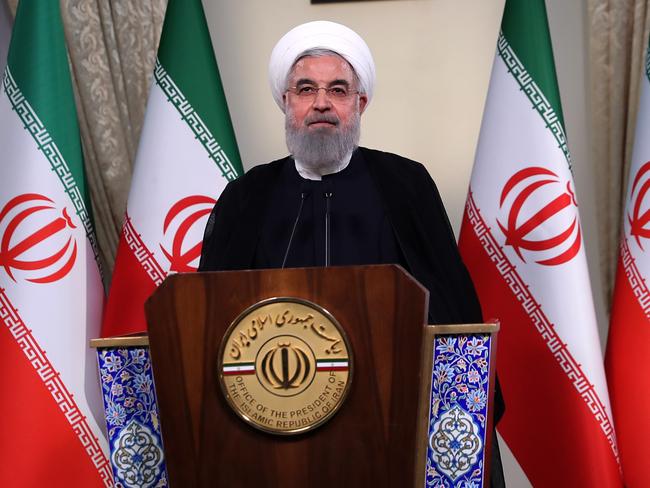
WORLD REACTS
The German, French and British governments all expressed dismay at the move.
British Prime Minister Theresa May, German Chancellor Angela Merkel and French President Emmanuel Macron called on the US to do everything possible to preserve the gains for nuclear nonproliferation.
They also asked Iran to show restraint in response to the decision while urging it to meet its own obligations.
However Israel Prime Minister Benjamin Netanyahu said his country fully supported Mr Trump’s decision, saying the deal didn’t push war further away but brought it closer.
Israel fully supports @realDonaldTrump’s bold decision today to reject the disastrous nuclear deal with the terrorist regime in Tehran. The deal didn’t push war further away; it actually brought it closer. The deal didn’t reduce Iran’s aggression; it dramatically increased it. pic.twitter.com/sxJHocLqu7
— Benjamin Netanyahu (@netanyahu) 8 May 2018
Former US President Barack Obama insisted the deal was working.
Mr Obama said Mr Trump’s move was misguided and walking away from the deal “turns our back on America’s closest allies”.
Furious protesters also burnt US flags in an angry demonstration in Tehran overnight in response to the US President’s move.
The Iranian leader warned his country could resume uranium enrichment “without limit” in response to the decision.
“I have instructed the Iranian Atomic Energy Organisation to take the necessary measures for future actions so that if necessary we can resume industrial enrichment without limit,” he said.
RISK GROWS
The International Atomic Energy Agency (IAEA) said Iran was honouring its commitments under the accord.
The fruit of more than a decade of diplomacy, the nuclear agreement was clinched in July 2015 by the US, France, Britain, Germany, Russia, China and Iran.
It was designed to prevent Iran developing a nuclear bomb in return for the removal of sanctions that had crippled its economy, not least by Washington threatening to penalise businesses anywhere in the world that traded with Iran.
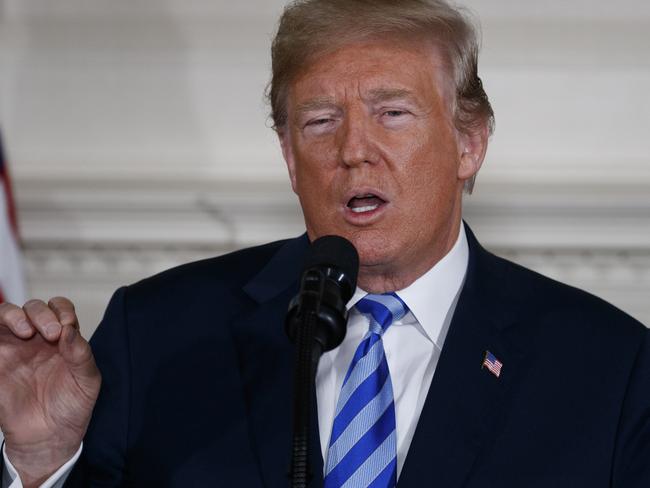
Mr Trump complained that the deal, the signature foreign policy achievement of his Democratic predecessor, Barack Obama, did not address Iran’s ballistic missile program, its nuclear activities beyond 2025 or its role in conflicts in Yemen and Syria.
“The fact is this was a horrible, one-sided deal that should have never, ever been made,” Mr Trump said.
“It didn’t bring calm, it didn’t bring peace, and it never will.”
The US President said he was ready to work on a new nuclear accord, one that would also curb Iran’s missile program.
However his decision raises the risk of deepening conflicts in the Middle East, puts the US at odds with European diplomatic and business interests and casts uncertainty over global oil supplies.
NUCLEAR RACE FEARS
Experts have also raised fears as to whether a US withdrawal will trigger a nuclear arms race, something Mr Trump said his decision to leave the JCPOA was designed to counter.
“If I allowed this deal to stand, there would soon be a nuclear arms race in the Middle East,” he said.
Middle East analyst James Dorsey, a senior fellow at Singapore’s S Rajaratnam School of International Studies, told AFP the move was concerning.
“Whether or not (the Iranians) go for a military program, you’re going to get a nuclear race in the Middle East,” he said.
In March, Saudi Arabia Crown Prince Mohammad bin Salman said if Iran gets a nuclear weapon, the kingdom would be compelled to follow suit.
He also said he didn’t believe Iran will not compromise on its ballistic missile program “because that is the core of their defence policy”.
For Saudi Arabia, that is “fine” because it means the return of sanctions and ratcheting up pressure on Iran in the region, including by Israel.
“It’s about Iran not about finding a solution,” he said.
THE NORTH KOREA QUESTION
Australian National University Southeast Asia Institute director John Blaxland told news.com.au that Mr Trump has “long had a strong desire to pull out of the Iran nuclear deal” and has finally delivered.
“While that may work for his political base, it is having a destabilising effect elsewhere,” Professor Blaxland said.
“It is disturbing to note that three of the US’ closest allies were unable to dissuade Mr Trump from his objective of ditching the JCPOA despite the very clear and compelling rationale they offered for preserving it.
“This is having a corrosive effect, not just in terms of how reliable European allies view the US but also across the other side of the Eurasian landmass, where South Korea, Japan and India have been in discussions with China recently about a range of trade and other issues that are spurred in part in response to Trump’s trade threats and his iconoclastic approach to international treaties.”
According to Prof Blaxland, Korea pundits are divided over whether Mr Trump has timed this to coincide with the forthcoming summit.
“Defenders see this as being about undermining Kim Jong Un’s sense of confidence; of rattling him into making greater concessions than would otherwise be the case,” he said.
“Others see this as a narrow-minded fixation with pursuing his agenda without thinking through the ramifications on the Korean peninsula.”
Kim’s release of three American hostages was not just a goodwill gesture but also a further point of pressure for Mr Trump to make “greater concessions than he might otherwise consider”, he said. And expectations in South Korea of a dramatic breakthrough appear to be growing. “President Moon Jae In is reported as remaining very optimistic and the polling indicates the South Korean people are backing him,” Prof Blaxland said.
“No one knows the future and there remain a significant number of variables which point to the summit being a ‘crash through or crash’ scenario.
“Mr Trump wants a deal. So does Kim. So that’s good. But who will blink first? Complete denuclearisation of the peninsula will be hard to agree upon and even harder to enforce. And the knock on consequences of such a deal are enormous.
“Does the UN Command in Korea dissolve if a peace deal is truck? Would US forces in Korea withdraw? How would Japan and Taiwan react to a significant reduction in the US military force posture in Northeast Asia?
“They are undoubtedly nervous. Many are increasingly anxious that even if there are some good news headlines that might emerge, pointing to peace, but they may prove to be more of a chimera than a substantive breakthrough that sees tensions reduced.”
— With AFP/Reuters

